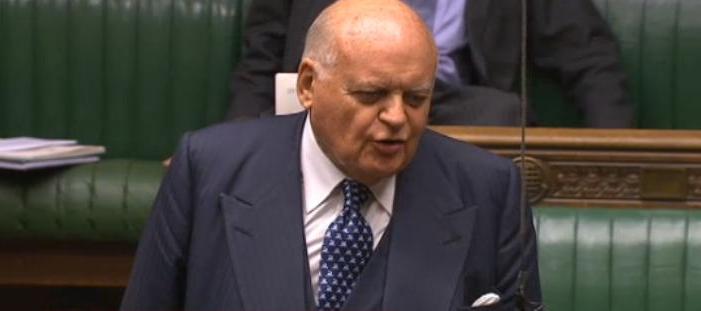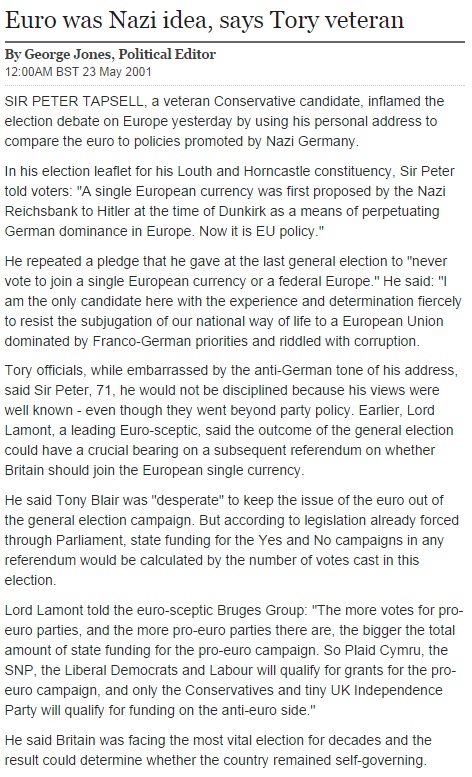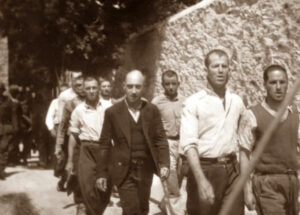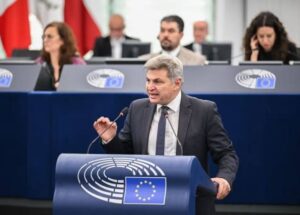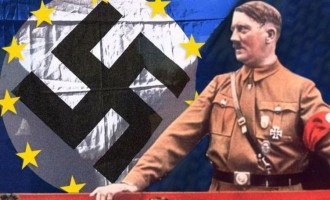
 ΔΕΙΤΕ ΠΡΩΤΟΙ ΟΛΑ ΤΑ ΝΕΑ ΤΟΥ TRIBUNE ΣΤΟ GOOGLE NEWS
ΔΕΙΤΕ ΠΡΩΤΟΙ ΟΛΑ ΤΑ ΝΕΑ ΤΟΥ TRIBUNE ΣΤΟ GOOGLE NEWS 
Η αποκάλυψη που ακολουθεί δημοσιεύθηκε στην Telegraph στις 23 Μαΐου του 2001 και είναι αναρτημένη στο διαδίκτυο εδώ. Ο τίλος του άρθρου είναι… αφοπλιστικός: “Euro was Nazi idea, says Tory veteran”, δηλαδή “Το ευρώ ήταν ιδέα των Ναζί, λέει βετεράνος (σ.σ. πολιτικός) των Τόρις”.
Ο Σερ Πήτερ Τάπσελ (Sir Peter Tapsel), βετεράνος συντηρητικός υποψήφιος, έλεγε το 2001 (πριν 13 χρόνια δηλαδή) στους ψηφοφόρους του: “Ένα μοναδικό ευρωπαϊκό νόμισμα προτάθηκε για πρώτη φορά από τη ναζιστική Κεντρική Τράπεζα στον Χίτλερ ως ένα μέσο διαιώνισης της γερμανικής κυριαρχίας στην Ευρώπη. Τώρα αυτή είναι πολιτική της Ενωμένης Ευρώπης”.
Μάλιστα, ο ίδιος έμπειρος πολιτικός (ήταν 71 ετών το 2001), φώναζε με σθένος ότι ποτέ δεν θα ψήφιζε “για ενιαίο νόμισμα ή ομοσπονδιακή Ευρώπη” (ό,τι δηλαδή μας συμβαίνει σήμερα).
Ο ίδιος επίσης έλεγε ότι “είμαι ο μόνος υποψήφιος εδώ με την εμπειρία και την απόφαση να αντισταθώ με σθένος στην υποταγή του εθνικού μας τρόπου ζωής σε μια Ευρωπαϊκή Ένωση που θα κυριαρχείται από τις Γαλλο-Γερμανικές προτεραιότητες, βουτηγμένη στη διαφθορά”.
Αυτά ειπώθηκαν στη Βρετανία κατά την προεκλογική περίοδο των εκλογών της 7ης Ιουνίου 2001, που έβγαλε νικητή τον Τόνι Μπλερ και το εργατικό κόμμα.
Βεβαίως, όπως όλοι γνωρίζετε, η Βρετανία -το Ηνωμένο Βασίλειο δηλαδή- ουδέποτε μπήκε στο ευρώ. Γιατί οι Βρετανοί γνώριζαν τι σήμαινε ευρώ και τι θα επακολουθούσε, κι όταν λέμε Βρετανοί δεν εννοούμε τον απλό λαό, γνώριζαν οι πολιτικοί τους για να προστατέψουν τον λαό, σε αντίθεση με τους δικούς μας υποτακτικούς (που παριστάνουν τους πολιτικούς) που πανηγύριζαν για το ευρώ, που τελικά μας κατέστρεψε…
Ο Σερ Πήτερ Τάπσελ δεν ήταν κανείς… προφήτης. Δεν χρειάζεται να είναι κανείς προφήτης για να δει το μέλλον. Η γνώση της ιστορίας, επειδή η ιστορία επαναλαμβάνεται, είναι το καλύτερο “χάρισμα” για την πρόγνωση του μέλλοντος. Ο Σερ Πήτερ Τάπσελ, επειδή ήξερε ιστορία, μπορούσε να δει καθαρά που θα οδηγούσε την Ενωμένη Ευρώπη το ευρώ και φυσικά έπεσε μέσα σε όλα διάνα!
Σας παραθέτουμε, στη συνέχεια, το πλήρες ρεπορτάζ της εποχής στα αγγλικά:
SIR PETER TAPSELL, a veteran Conservative candidate, inflamed the election debate on Europe yesterday by using his personal address to compare the euro to policies promoted by Nazi Germany.
In his election leaflet for his Louth and Horncastle constituency, Sir Peter told voters: “A single European currency was first proposed by the Nazi Reichsbank to Hitler at the time of Dunkirk as a means of perpetuating German dominance in Europe. Now it is EU policy.”He repeated a pledge that he gave at the last general election to “never vote to join a single European currency or a federal Europe.” He said: “I am the only candidate here with the experience and determination fiercely to resist the subjugation of our national way of life to a European Union dominated by Franco-German priorities and riddled with corruption.
Tory officials, while embarrassed by the anti-German tone of his address, said Sir Peter, 71, he would not be disciplined because his views were well known – even though they went beyond party policy. Earlier, Lord Lamont, a leading Euro-sceptic, said the outcome of the general election could have a crucial bearing on a subsequent referendum on whether Britain should join the European single currency.He said Tony Blair was “desperate” to keep the issue of the euro out of the general election campaign. But according to legislation already forced through Parliament, state funding for the Yes and No campaigns in any referendum would be calculated by the number of votes cast in this election.
Lord Lamont told the euro-sceptic Bruges Group: “The more votes for pro-euro parties, and the more pro-euro parties there are, the bigger the total amount of state funding for the pro-euro campaign. So Plaid Cymru, the SNP, the Liberal Democrats and Labour will qualify for grants for the pro-euro campaign, and only the Conservatives and tiny UK Independence Party will qualify for funding on the anti-euro side.”
He said Britain was facing the most vital election for decades and the result could determine whether the country remained self-governing.


